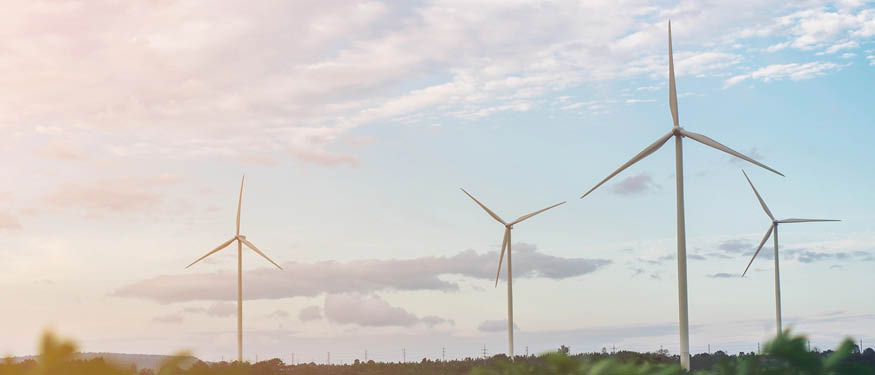The insurance arbitration system is an alternative dispute resolution mechanism aimed at resolving disputes arising from insurance contracts more quickly and efficiently, without resorting to the courts.
Company Share as a Joint Property of Marital Spouses
One of the most frequently asked questions by our clients during divorce proceedings concerns what exactly belongs to a spouse in relation to a company that was undoubtedly founded using the joint property of the spouses during the marriage, despite the fact that the spouse in question formally and legally does not hold the status of a founder or is not registered as the owner of a share in that company. In other words, the founding contribution amounted to 1 euro, and the company is now worth millions—what rights does each spouse have?
Macedonian Competition Commission Stepping Up Its Enforcement Efforts
In the last few months, the Commission for Protection of Competition of the Republic of North Macedonia (the “Commission”) has stepped up its enforcement efforts of antitrust rules and food supply chain practices in the country.
Is Expropriation a Legally Justified Mechanism for the Protection of the Public Interest?
Expropriation is the process of taking or limiting ownership and other property rights over real estate for the purpose of realizing a public interest as defined by law. In the Republic of North Macedonia, this process is regulated by a specific Law on Expropriation.
Small Debts Simplified Claims Threshold Increase Welcomed by Romanian Businesses
On April 8, 2025, the lower Romanian chamber of the Parliament approved the legislative proposal no. 606 (Proposal) that aims to raise the threshold pertaining to the initiation of a specific type of lawsuit concerning debt recovery.
Employing Foreign Nationals in Romania: Challenges, Regulations, and Solutions to Overcome Labor Shortages
Romania continues to experience a significant labor shortage due to widespread emigration and demographic decline, particularly in the construction, trade, and HoReCa (Hotel/Restaurant/Café) sectors.
Transposition of the Corporate Sustainability Reporting Directive in Romania
Romania is taking a decisive step toward integrating the EU’s Corporate Sustainability Reporting Directive (CSRD) through the triple regulatory framework simultaneously established by the Ministry of Finance through Order No. 85/2024, the Financial Supervisory Authority through Norm No. 4/2024, and the National Bank of Romania through Order No. 1/2024.
Romania’s Logistics Landscape in Motion: Strategic Shifts Amid Market Consolidation
Romania’s logistics and transportation sector is entering a new era. With the recent regulatory approval of DSV’s acquisition of DB Schenker, the industry is witnessing the most significant consolidation move in over a decade. The deal directly reshapes how logistics providers in Romania position themselves, scale their operations, and recalibrate strategic priorities.
Powering the Future: Key Legal Developments in the Romanian Energy Sector for 2025
The Romanian energy sector has been a hot topic in recent years due to market developments as well as to the legal framework which continued to adapt to governmental policies and the market’s needs. 2024 was no exception to this trend, with several milestones reached, and 2025 is expected to bring further changes and evolutions on the market.
The Constitutional Court of Romania Definitively Settles the Issue of Building Permits Following the Annulment of Zonal Urban Plans
On April 9, 2025, the Constitutional Court of Romania (CCR) published a press release with significant implications for urban planning practice and real estate development in Romania.
Accessibility Law and Its Impact on Banking Services in Romania
Romania is set to implement a significant legal framework aimed at enhancing the accessibility of products and services for all consumers, particularly those with disabilities.
Romania’s Transition to Renewable Energy
Romania is accelerating its transition to renewable energy, aiming to expand wind and solar power as key components of its energy mix. In 2024, several new regulations were introduced to incentivize private investment and streamline project approvals, fostering a more attractive environment for green energy development.
A Busy Romanian Competition Council
The Romanian competition landscape has constantly been at the intersection of significant investment activity and intense regulatory enforcement.
Balancing the Scales: North Macedonia’s New Law on Unfair Trading Practices
North Macedonia has taken a significant step in regulating market competition with the enactment of the Law on the Prohibition of Unfair Trade Practices in the Supply Chain of Agricultural and Food Products (Law).
Facial Recognition and Minor Offences: New Hungarian Law Raises EU Compliance Questions
In March 2025, the Hungarian Parliament enacted legislation expanding the use of facial recognition technologies in minor offence procedures. The law is a part of broader efforts aimed at enhancing child protection measures, but has sparked considerable legal debate due to potential conflicts with European data protection laws, including the General Data Protection Regulation (GDPR) and the forthcoming EU Artificial Intelligence Act.
Bribery and Corruption in Ukraine
Contributed by Arzinger.
Bribery and Corruption in Slovenia
Contributed by Selih & Partnerji.
Bribery and Corruption in Serbia
Contributed by NSTLaw.

































